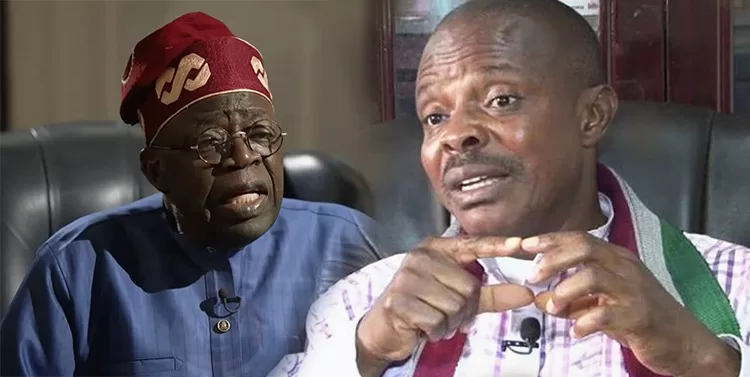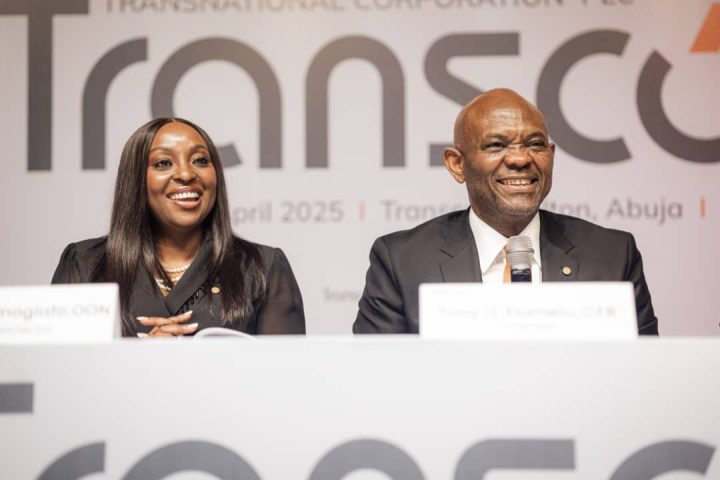As the five-day ultimatum given by organized labor for the federal government to propose an acceptable minimum wage nears its end, negotiations remain at a standstill.
The federal government has yet to present a proposal to the tripartite committee, causing frustration among labor representatives.
Join our WhatsApp ChannelJoe Ajaero, President of the Nigeria Labour Congress (NLC), spoke to journalists after the tripartite committee meeting on Thursday. “The committee is still working, so when they finish, Nigerians will get the report,” Ajaero said. He expressed disappointment that the government had not yet submitted its template as directed to the committee.
“They didn’t present any report or proposal to the whole house, they presented it to the committee of the house, and as you can see, they are still working on it,” Ajaero continued. He remains hopeful that the government team will make their presentation on Friday for deliberation. When asked if the issues will be resolved by Friday, Ajaero replied, “That is a wish to all of us, that is our prayer.”
Ajaero also addressed rumors that the government had offered N105,000 as the new minimum wage. “Such information is not before us, either officially or unofficially. We are still at our position before now, and I know that government, having not presented their own position, are still at where they were before now,” he stated. “Until it is made public and discussed, we cannot say that they have a position.”
This sentiment was echoed by Bayo Onanuga, the Special Adviser to the President on Communication and Strategy. Onanuga, through his X handle, urged Nigerians to disregard the information, stating there is no truth in it.
READ ALSO: Moghalu Recommends N100,000 Minimum Wage
Wale Edun, the Minister of Finance and Coordinating Minister of the Economy, presented a report to President Bola Tinubu on Thursday, outlining the cost implications of the new minimum wage. Edun, accompanied by Atiku Bagudu, the Minister of Budget and National Planning, left the President’s office without disclosing any figures but reassured, “No cause for alarm.” He urged Nigerians to “expect a good figure.”
The team then moved from the Presidential Villa to the venue of the Tripartite Committee meeting on Minimum Wage, where they are expected to unveil the new figure. President Tinubu had given Edun a 48-hour ultimatum on Tuesday to come up with the cost implications of the new minimum wage.
The Organised Labour had called off its indefinite nationwide strike on Tuesday to allow the government to propose a figure acceptable to all parties. The strike was initially declared to press for a minimum wage to alleviate the economic hardship caused by the removal of fuel subsidies, which had driven inflation to 33.69%, the highest in nearly three decades.
This economic strain has led to significant price increases, including a 114% rise in the cost of a bag of rice, a 107% increase in flour prices, and a 150% rise in transport fares since May 2023.
“Today, in some locations, motorists are paying 305% more for a litre of fuel, at a minimum wage of N30,000, an equivalent of US$23 per month, making Nigerian workers among the lowest paid in the world,” Ajaero pointed out. Labour also criticized the increase in electricity tariffs, noting that the average price of diesel has doubled to N1,600 per litre and that electricity tariffs were raised by 250%, increasing the operating costs of the manufacturing sector by about 70%.
Based on these conditions, Labour proposed a minimum wage of N615,000 per worker per month, later reduced to N494,000 during negotiations. The federal government initially offered N54,000, which Labour rejected. The government then increased the offer to N57,000 and finally to N60,000. Labour described these offers as “a very paltry sum” that, in real terms, is below the current national minimum wage.
Auwal Musa (Rafsanjani), a Nigerian civil rights activist and Executive Director of the Civil Society Legislative Advocacy Centre, emphasized the need for the federal government to approve a minimum wage that will alleviate the suffering of Nigerian workers. “Labour has so far demonstrated goodwill and maturity in the handling of the ongoing minimum wage negotiations,” he noted. Musa also urged the organized private sector to pay a living wage, arguing that their profits allow for better wages.
“The government must reduce waste, looting of public funds, and demonstrate goodwill. A good wage is not above this government,” Musa said.
As the deadline approaches, the nation waits with bated breath for a resolution that will impact millions of Nigerian workers struggling under the weight of economic hardship.
Emmanuel Ochayi is a journalist. He is a graduate of the University of Lagos, School of first choice and the nations pride. Emmanuel is keen on exploring writing angles in different areas, including Business, climate change, politics, Education, and others.



















Follow Us